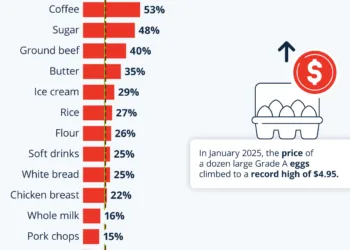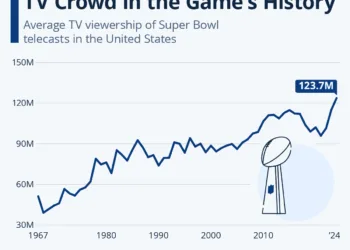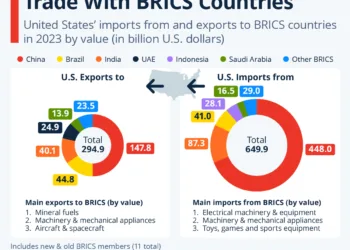In the closing days of the U.S. presidential election campaign, there exists a genuine potential for a woman to ascend to the highest office. This raises the question of why it has taken so long for this to happen, and whether Kamala Harris possesses the qualities needed to make history.
My work focuses on examining notable women throughout history and how they collectively illustrate the evolving role of women in society. Specifically, I have sought to uncover the historical themes and trends that explain the emergence of the first elected female leaders.
Generally, women in politics are viewed as a minority, often emerging from disadvantaged backgrounds. When they do achieve success, they’re often seen as exceptions in a traditionally male-dominated system.
However, the intricate dynamics of gender, race, class, and culture reveal a more complex reality, as the dialogue surrounding Harris’s biracial identity illustrates.
I have identified three distinct groups of women who have successfully assumed leadership roles in their nations since Sirimavo Bandaranaike of Ceylon (now Sri Lanka) became the world’s first female prime minister in 1960.
Does Kamala Harris belong to any of these categories? If she does, does she have the qualities necessary to become president? Or, given its status as a global superpower, does the U.S. require a new style of female leadership?
Dynastic Leaders
The first group consists of women who have risen to power primarily through hereditary and dynastic lines rather than through contemporary democratic processes.
Bandaranaike was often referred to as the “gentle widow” of Solomon Bandaranaike, Ceylon’s fourth prime minister, who was assassinated in 1959. She was followed by other dynastic female leaders, like Indira Gandhi (India), Benazir Bhutto (Pakistan), and Park Geun-hye (South Korea), each taking office after the loss of their fathers. Others such as Corazon Aquino (Philippines), Violeta Chamorro (Nicaragua), and Khaleda Zia (Bangladesh) stepped into leadership after the assassination of their husbands.
Through these roles, these women aimed to revitalize family legacies, often embodying traditional maternal figures who were seen as nurturing leaders for newly decolonized nations. Bandaranaike, as her biographer noted, was “the symbol, the figurehead that was necessary; the spark to ignite the flame.”
It wasn’t until 2016 that Taiwan’s Tsai Ing-wen became the first woman in Asia to lead her country without being born into a political family. This context underscores the paradox of female leadership arising in societies marked by deep gender, class, and ethnic disparities, even in some Islamic nations that were among the first to elect women.
While coming from a political dynasty may benefit many female leaders, for Kamala Harris, the lack of such a pedigree might actually work in her favor in a country that prides itself on being a meritocratic melting pot.
To be sure, the U.S. has its political dynasties, with families like the Bushes and Kennedys holding sway. However, Hillary Clinton’s defeat by Donald Trump in 2016 could partly be attributed to a backlash against the idea of a Clinton dynasty. Harris, being the daughter of immigrants from India and Jamaica, may be more appealing to voters this time around.
Conservative Women Leaders
The second group consists of politically conservative women, predominantly white and Western. While some, such as Golda Meir (Israel) and Margaret Thatcher (UK), were elected, others like Kim Campbell (Canada) and Theresa May (UK) were appointed by their parties during their terms. This suggests a general hesitance among conservative voters to embrace change by supporting women candidates.
Women in this group often aim to be viewed as equal to their male counterparts, positioning themselves as “honorary men.” Margaret Thatcher famously adopted the “Iron Lady” persona during the 1982 Falklands War, while Golda Meir’s image fluctuated between the nurturing grandmother and the overbearing mother.
Harris does not belong to this group. Had she been a Republican, she might have created a maternal image as a caring figure who supports traditionally conservative values, such as gun rights. However, her appeal leans towards the progressive side of American society, which may actually work to her advantage.
Progressive Change-Makers
The third group leans left and actively confronts restrictive gender and maternal roles. Although most female world leaders have children, some in this group do not. Unlike those in the previous categories, these women often challenge existing male power structures and advocate for political reform, making it generally more challenging for them to gain election.
Women in this group frequently share backgrounds in academia or public service. Notable examples include Gro Harlem Brundtland (Norway), a medical doctor; Mary McAleese (Ireland), a lawyer and academic; and Angela Merkel (Germany), who holds a PhD in quantum chemistry.
These leaders strive to create new forms of leadership by encouraging more women to enter politics and confronting sexism, homophobia, and racism. Their focus is broader, aiming to transform global governance toward greater pluralism and kindness. Since Elizabeth Domitien became the prime minister of the Central African Republic in 1975, more women leaders who fit this profile have emerged, including Vigdis Finnbogadóttir (Iceland), Michelle Bachelet (Chile), and Jacinda Ardern (New Zealand).
The Challenge for Harris
Kamala Harris most clearly fits into this last category. She is well-educated and has extensive public service experience. Unlike many from other groups, she does not have children, which has led to derogatory labels such as "childless cat lady." This points to perhaps her most formidable obstacle: navigating the hyper-masculine culture of a military-dominant superpower.
Unsurprisingly, rival military powers like Russia and China have yet to elect a woman leader. This situation suggests that becoming a transformative, social change leader in a nuclear-capable nation may require a different kind of female leadership—perhaps a new-age warrior woman.
It remains to be seen whether the U.S., along with the world and Harris herself, is prepared for this role.






